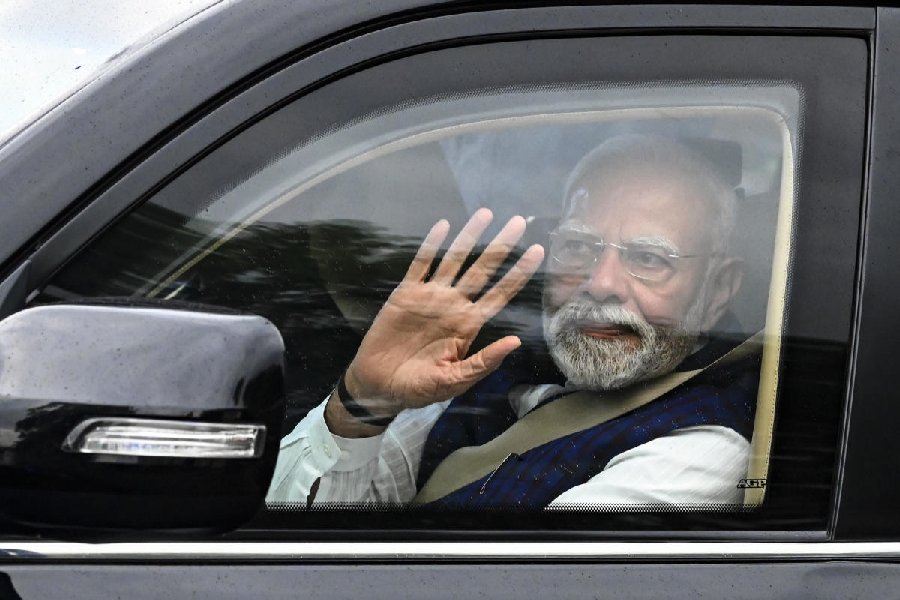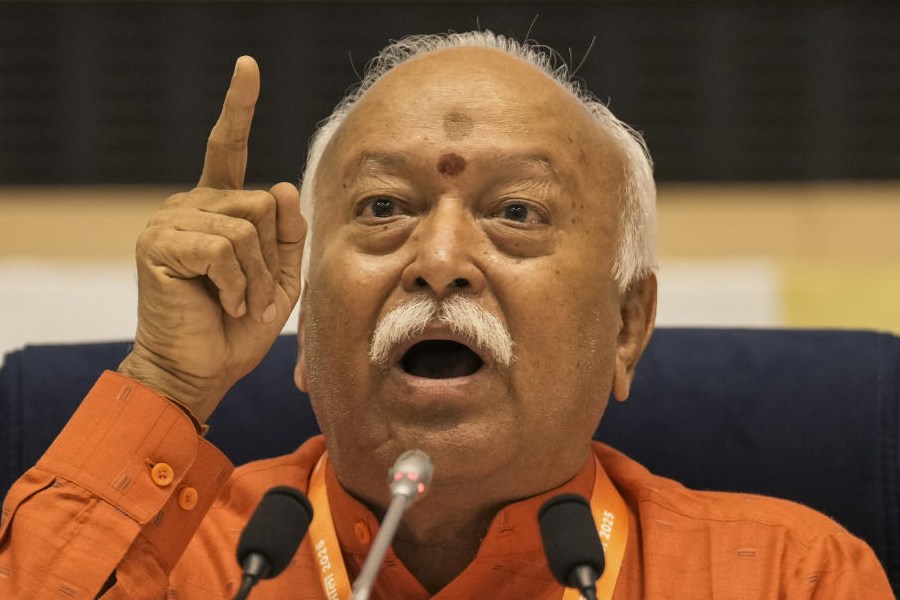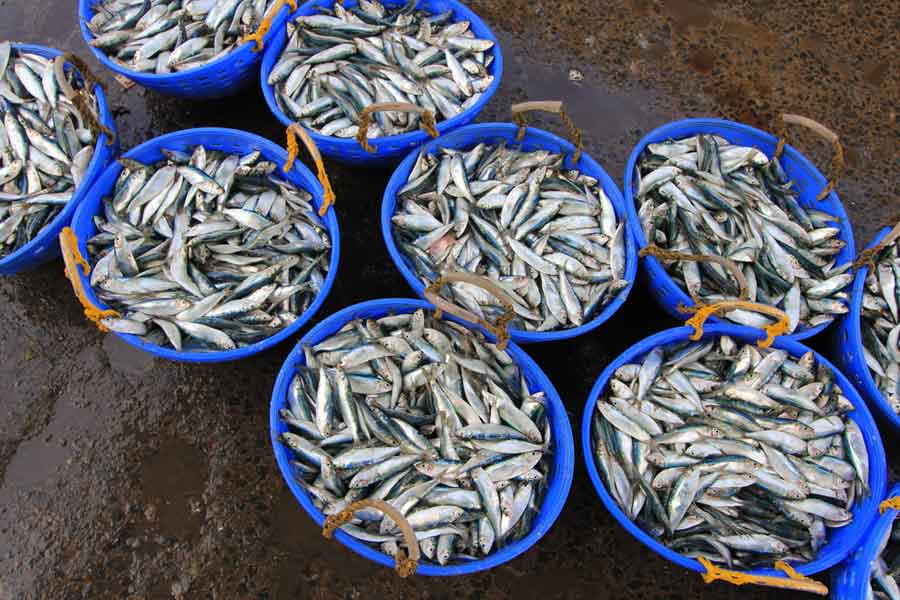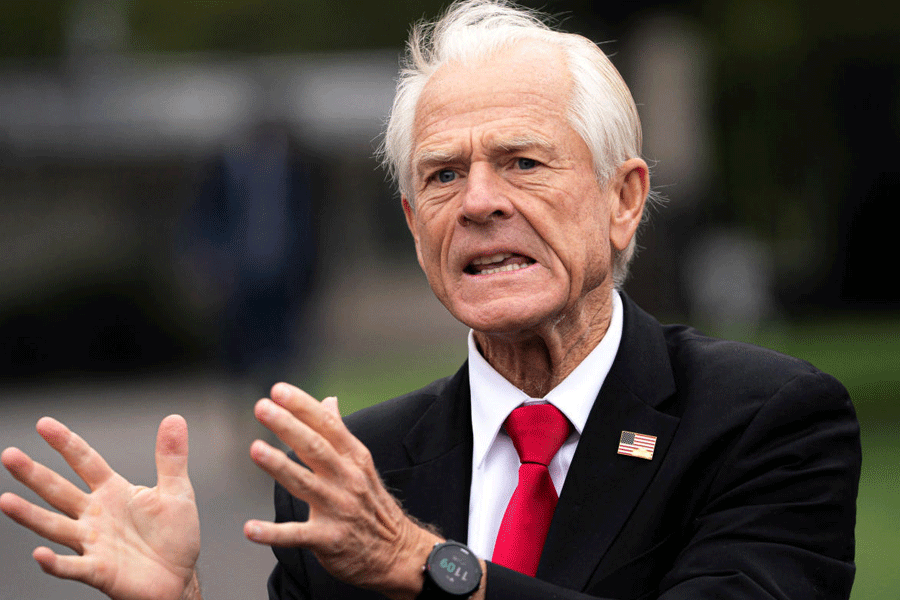 |
| Artists stage a play at Rabindra Mandap. Picture by Ashwinee Pati |
Bhubaneswar, Feb. 20: From the mundane textbook pages, history came alive on stage when cultural organisation, the Satabdira Kalakara, began its annual theatre festival, 15th Kalinga Natya Mahotsav, with a historical play based on the life of King Kharavela.
The weeklong festival began yesterday at Rabindra Mandap.
The play, enacted by the Kalakara artistes, began with a scene where a history professor was shown speaking to two heavenly figures.
The teacher speaks of what is written in the history books while the demigods speak what they have witnessed over centuries. The story now goes back in the flashback and the life of King Kharavela is depicted.
Kharavela was the third and greatest emperor of the Mahameghavahana dynasty of Kalinga (present-day Odisha). During his reign, the Chedi dynasty restored the lost power and glory of Kalinga, which had been subdued since the devastating war with Asoka.
As the play progresses, the King, played by actor Gobind, goes on to defeat the Indo-Greek ruler, Demetrius and all others, who had tried to conquer Kalinga. But true to his humanitarian nature, he never kills them and instead goes on to forgive them much against the warnings of his ministers.
His next big task is to defeat the Maurya ruler of Magadh, Mahapadmananda. Kharavela not only wins the war, but also gets back the Jain statue of Mahavira, avenging the psychological loss of the statue, a symbol of Kalinga’s pride, at the hands of Asoka Maurya. But after winning the war, he is troubled by the loss of human life and property, and thus, decides to give up all worldly pleasures and become an ascetic, just like Asoka.
The costumes of the artistes were apt and the props, used intelligently. The long monologues took some steam off the play, but the overall act was engaging. Dhira Mallick directed the play written by Ramakanta Banerjee.
“Kharavela was a just ruler and upright warrior. We wish to remind the youngsters about our glorious past,” said Mallick.
On the occasion, Mallick also announced that if the state culture department continues to organise the national-level contemporary festival, from next year, the Kalakara would change the format of the festival. According to its new format, the festival will feature plays on the works of a particular playwright.










